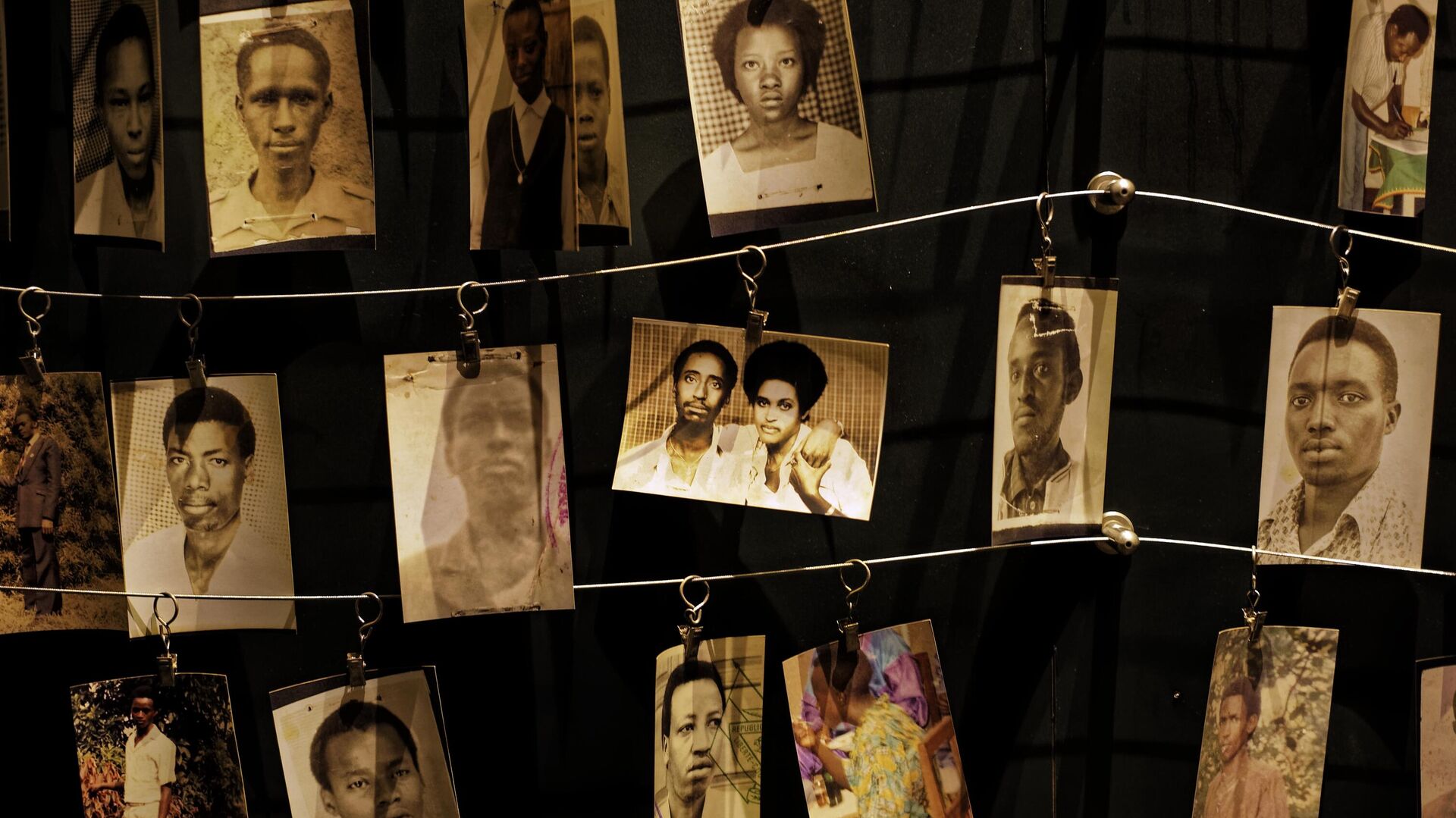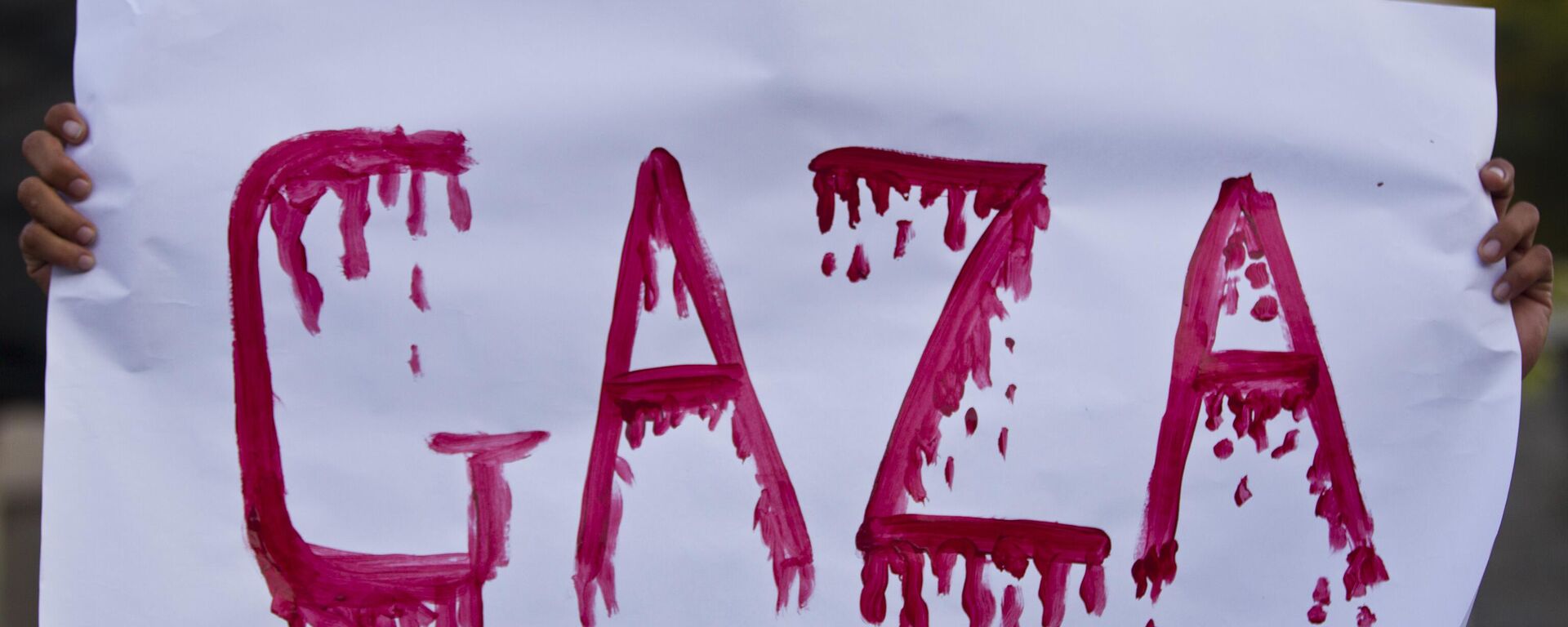https://en.sputniknews.africa/20241212/embracing-shared-humanity-s-african-researcher-calls-for-rejecting-exclusion-to-prevent-genocide-1069685421.html
Embracing Shared Humanity: S. African Researcher Calls for Rejecting Exclusion to Prevent Genocide
Embracing Shared Humanity: S. African Researcher Calls for Rejecting Exclusion to Prevent Genocide
Sputnik Africa
Observed annually on December 9, the UN International Day of Commemoration and Dignity of the Victims of the Crime of Genocide promotes awareness of the... 12.12.2024, Sputnik Africa
2024-12-12T18:22+0100
2024-12-12T18:22+0100
2024-12-13T10:53+0100
opinion
africa insight
gaza
west
south africa
sputnik africa
southern africa
genocide
middle east
crimes against humanity
https://cdn1.img.sputniknews.africa/img/07e8/04/07/1065950566_0:175:3019:1873_1920x0_80_0_0_20e01cb27ad9c1519f5a5f1f6b1ffcdc.jpg
To prevent genocide, societies must reject exclusion-based identities and embrace common humanity, Rasigan Maharajh, Chief Director of the Institute for Economic Research on Innovation at Tshwane University of Technology, told Sputnik Africa.Advancing anti-racism, solidarity, cooperation, and collaboration is essential to creating opportunities to escape the possibility of genocide, the speaker added.Addressing the barriers to peace and mobility, Maharajh highlighted the importance of equality and shared humanity.Maharajh criticized ongoing conflicts where land claims are tied to violence, noting, “On the basis of stolen land, I doubt peace is ever possible.”The United Nations International Day of Commemoration and Dignity of the Victims of the Crime of Genocide and of the Prevention of this Crime also underscores the need to address contemporary conflicts and historical complicity, particularly regarding the ongoing crisis in Gaza. Maharajh pointed out the West’s silence on South Africa’s appeals to end the violence, attributing it to their “historical complicity” in establishing and maintaining colonial systems.Looking toward the future, Maharajh expressed hope in younger generations for fostering a more inclusive world.
https://en.sputniknews.africa/20241205/it-must-stop-now-amnesty-international-accuses-israel-of-genocide-in-gaza-1069562735.html
gaza
west
south africa
southern africa
middle east
Sputnik Africa
feedback@sputniknews.com
+74956456601
MIA „Rossiya Segodnya“
2024
Christina Glazkova
https://cdn1.img.sputniknews.africa/img/07e7/0b/07/1063380906_0:0:673:674_100x100_80_0_0_79628b4d0cd9f29291a57aa13bbf9e7a.jpg
Christina Glazkova
https://cdn1.img.sputniknews.africa/img/07e7/0b/07/1063380906_0:0:673:674_100x100_80_0_0_79628b4d0cd9f29291a57aa13bbf9e7a.jpg
News
en_EN
Sputnik Africa
feedback@sputniknews.com
+74956456601
MIA „Rossiya Segodnya“
Sputnik Africa
feedback@sputniknews.com
+74956456601
MIA „Rossiya Segodnya“
Christina Glazkova
https://cdn1.img.sputniknews.africa/img/07e7/0b/07/1063380906_0:0:673:674_100x100_80_0_0_79628b4d0cd9f29291a57aa13bbf9e7a.jpg
africa insight, gaza, west, south africa, sputnik africa, southern africa, genocide, middle east, crimes against humanity, united nations (un), neocolonialism
africa insight, gaza, west, south africa, sputnik africa, southern africa, genocide, middle east, crimes against humanity, united nations (un), neocolonialism
Embracing Shared Humanity: S. African Researcher Calls for Rejecting Exclusion to Prevent Genocide
18:22 12.12.2024 (Updated: 10:53 13.12.2024) Christina Glazkova
Writer / Editor
Observed annually on December 9, the UN International Day of Commemoration and Dignity of the Victims of the Crime of Genocide promotes awareness of the Genocide Convention, adopted on this date in 1948. The day honors genocide victims, emphasizes the importance of preventing future atrocities, and calls for global education, vigilance, and action.
To prevent genocide, societies must reject exclusion-based identities and embrace common humanity, Rasigan Maharajh, Chief Director of the Institute for Economic Research on Innovation at Tshwane University of Technology, told Sputnik Africa.
“If we didn’t have such [exclusion-based] identification, if we had in fact embraced our common humanity, issues such as genocide would not be prevalent, would not have occurred, and will not be able to occur in the future,” he explained.
Advancing anti-racism, solidarity, cooperation, and collaboration is essential to creating opportunities to escape the possibility of
genocide, the speaker added.
Addressing the barriers to peace and mobility, Maharajh highlighted the importance of equality and shared
humanity.“Mobility, in my opinion, has to be enhanced, improved and expanded, if not accelerated, but on the basis of equality of anti-racism, of anti-xenophobias,” he said.
Maharajh criticized ongoing conflicts where land claims are tied to violence, noting, “On the basis of stolen land, I doubt peace is ever possible.”
The United Nations International Day of Commemoration and Dignity of the Victims of the Crime of Genocide and of the Prevention of this Crime also underscores the need to address contemporary conflicts and historical complicity, particularly regarding the ongoing crisis in
Gaza. Maharajh pointed out the West’s silence on
South Africa’s appeals to end the violence, attributing it to their “historical complicity” in establishing and maintaining colonial systems.
“It’s quite important in terms of recognizing not just the genocide as we see it take place in real time […] but also what this reminds us of […] a dark mirror representing backwards in time […] the continued threat of genocide being visited upon” marginalized peoples, he said.
Looking toward the future, Maharajh expressed hope in
younger generations for fostering a more inclusive world.
“Generation Z […] recognizes the threat that we are confronted by, but is not locked into the ill-framed, ill-fashioned forms of neocolonialism and the new imperialism as we see today,” he concluded.



